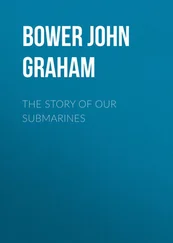“I’m Ethan Hawley. Are you looking for me?” I saw teeth in the dimness—gleaming teeth picked out by our street light.
The door sprang open of itself and a lean, well-tailored man stepped out. “I’m Dunscombe, Brock and Schwin, television branch. I have to talk to you.” He looked toward the driver. “Not here. Can we go inside?”
“I guess so. I think everyone’s asleep. If you talk quietly…”
He followed me up our walk of flagstones set in the spongy lawn. The night light was burning in the hall. As we went in I put the narwhal stick in the elephant’s foot.
I turned on the reading light over my big sprung-bottomed chair.
The house was quiet, but it seemed to me the wrong kind of quiet—a nervous quiet. I glanced up the stairwell at the bedroom doors above.
“Must be important to come this late.”
“It is.”
I could see him now. His teeth were his ambassadors, un-helped by his weary but wary eyes.
“We want to keep this private. It’s been a bad year, as you well know. The bottom fell out with the quiz scandals and then the payola fuss and the Congressional committees. We have to watch everything. It’s a dangerous time.”
“I wish you’d tell me what you want.”
“You’ve read your boy’s I Love America essay?”
“No, I haven’t. He wanted to surprise me.”
“He has. I don’t know why we didn’t catch it, but we didn’t.” He held out a folded blue cover to me. “Read the underlining.”
I sank into my chair and opened it. It was either printed or typed by one of those new machines that looks like type, but it was marred with harsh black pencil lines down both margins.
I LOVE AMERICA
by
ETHAN ALLEN HAWLEY II
“What is an individual man? An atom, almost invisible without a magnifying glass—a mere speck upon the surface of the universe; not a second in time compared to immeasurable, never-beginning and never-ending eternity, a drop of water in the great deep which evaporates and is borne off by the winds, a grain of sand, which is soon gathered to the dust from which it sprung. Shall a being so small, so petty, so fleeting, so evanescent oppose itself to the onward march of a great nation which is to subsist for ages and ages to come, oppose itself to that long line of posterity which springing from our loins will endure during the existence of the world? Let us look to our country, elevate ourselves to the dignity of pure and disinterested patriots, and save our country from all impending dangers. What are we—what is any man—worth who is not ready and willing to sacrifice himself for his country?” [79] What is an individual… his country?: Delivered on July 22, 1850, Henry Clay’s speech on the Compromise of 1850.
I riffled through the pages and saw the black marks everywhere.
“Do you recognize it?”
“No. It sounds familiar—sounds like maybe somewhere in the last century.”
“It is. It’s Henry Clay, delivered in 1850.”
“And the rest? All Clay?”
“No—bits and pieces, some Daniel Webster, some Jefferson, and, God help me, a swatch from Lincoln’s Second Inaugural. I don’t know how that got past. I guess because there were thousands of them. Thank Christ we caught it in time—after all the quiz troubles and Van Doren and all.”
“It doesn’t sound like the prose style of a boy.”
“I don’t know how it happened. And it might have gone through if we hadn’t got the postcard.”
“Postcard?”
“Picture postcard, picture of the Empire State Building.”
“Who sent it?”
“Anonymous.”
“Where was it mailed from?”
“New York.”
“Let me see it.”
“It’s under lock and key in case there’s any trouble. You don’t want to make trouble, do you?”
“What is it you want?”
“I want you to forget the whole thing. We’ll just drop the whole thing and forget it—if you will.”
“It’s not a thing easy to forget.”
“Hell, I mean just keep your lip buttoned—don’t give us any trouble. It’s been a bad year. Election year anybody will dig up anything.”
I closed the rich blue covers and handed it back to him. “I won’t give you any trouble.”
His teeth showed like matched pearls. “I knew it. I told them. I looked you up. You have a good record—good family.”
“Will you go away now?”
“You’ve got to know I understand how you feel.”
“Thank you. And I know how you feel. What you can cover up doesn’t exist.”
“I don’t want to go away leaving you angry. Public relations is my line. We could work something out. Scholarship or like that—something dignified.”
“Has sin gone on strike for a wage raise? No, just go away now—please!”
“We’ll work something out.”
“I’m sure you will.”
I let him out and sat down again and turned out the light and sat listening to my house. It thudded like a heart, and maybe it was my heart and a rustling old house. I thought to go to the cabinet and take the talisman in my hand—had stood up to get it.
I heard a crunching sound and a whinny like a frightened colt, and quick steps in the hall and silence. My shoes squidged on the stairs. I went in to Ellen’s room and switched on the light. She was balled up under a sheet, her head under her pillow. When I tried to lift the pillow she clung to it and I had to yank it away. A line of blood ran from the corner of her mouth.
“I slipped in the bathroom.”
“I see. Are you badly hurt?”
“I don’t think so.”
“In other words, it’s none of my business.”
“I didn’t want him to go to jail.”
Allen was sitting on the edge of his bed, naked except for jockey shorts. His eyes—they made me think of a mouse in a corner, ready at last to fight a broom.
“The stinking sneak!”
“Did you hear it all?”
“I heard what that stinking sneak did.”
“Did you hear what you did?”
The driven mouse attacked. “Who cares? Everybody does it. It’s the way the cooky crumbles.”
“You believe that?”
“Don’t you read the papers? Everybody right up to the top—just read the papers. You get to feeling holy, just read the papers. I bet you took some in your time, because they all do. I’m not going to take the rap for everybody. I don’t care about anything. Except that stinking sneak.”
Mary awakens slowly, but she was awake. Perhaps she hadn’t been asleep. She was in Ellen’s room, sitting on the edge of the bed. The street light made her plain enough with shadows of leaves moving on her face. She was a rock, a great granite rock set in a tide race. It was true. She was tough as a boot, unmoving, unyielding, and safe.
“Will you be coming to bed, Ethan?”
So she had been listening too.
“Not now, my darling dear.”
“Are you going out again?”
“Yes—to walk.”
“You need your sleep. It’s still raining. Do you have to go?”
“Yes. There’s a place. I have to go there.”
“Take your raincoat. You forgot it before.”
“Yes, my darling.”
I didn’t kiss her then. I couldn’t with the balled and covered figure beside her. But I touched her shoulder and I touched her face and she was tough as a boot.
I went to the bathroom for a moment for a package of razor blades.
I was in the hall, reaching in the closet for a raincoat as Mary wished, when I heard a scuffle and a scramble and a rush and Ellen flung herself at me, grunting and snuffling. She buried her bleeding nose against my breast and pinned my elbows down with encircling arms. And her whole little body shook.
I took her by the forelock and pulled her head up under the hall night light.
Читать дальше











